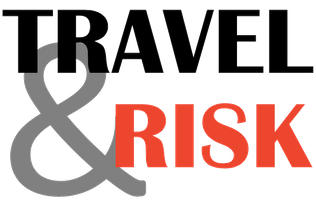DIGITAL SELF-DEFENCE FOR TRAVELERS
It is difficult to manage without your computer, tablet and phone and therefore we often bring 2-3 devices on a trip. We all need access to our documents and data more than ever before when we are abroad on a business trip.
It is therefore important that you also include your digital security in your risk assessment when planning a trip. Digital threats, by their very nature, rarely recognize national borders, but once you're on your way, you're more exposed than usual.
Both when we are out and at home, we face an increasing threat from cybercrime. The masterminds behind cybercrime are gaining access to ever greater resources, while their methods are becoming ever more sophisticated. In addition, political and economic cyber-espionage can be a relevant threat for someone, and new phenomena such as cyber-harassment and cyber-terrorism have appeared (however, the threat from the latter is assessed as not present in Denmark by the Center for Cyber Security at the Defense Intelligence Service).
DIGITAL SECURITY IS ABOUT BEHAVIOR
One of the biggest threats to organizations' digital security today is the behavior of employees. The participants on our travel safety trainings seem to be very aware that they themselves can be one of the weak links in the chain, especially when they travel abroad. Therefore, we see an increasing demand for knowledge about digital travel security: How should I handle IT security on my computer and smartphone when I take it out into the big world?
Travel&Risk has a close collaboration with the experts on digital security, which is why we can deliver the latest knowledge in the field and translate it into concrete, practical behavior before, during and after the trip. The Cybernauts have a vision for digital travel safety that is close to our general starting point at Travel&Risk: What you learn, has to be very close to your practice, so that it leads to concrete changes in your behavior. If it becomes too complicated or resource-intensive to secure yourself digitally on the journey, then you simply won't do it.
PHISHING IS THE MOST COMMON ATTACK
Phishing means using various psychological tricks to deceive the victim by means of a false message. Many people can easily recognize the simple phishing attacks that almost everyone is exposed to: Criminals try to lure you into submitting usernames, passwords etc. to fake websites. But phishing attacks can be so sophisticated and targeted that they can be difficult to recognize and protect against.
Phishing attacks primarily use psychological vulnerabilities to achieve their goals. Part of the defense against them is therefore also a resilience against the stress, which they use, among other things, to bypass our common sense, and which can be more acute when traveling in remote areas. Travel&Risk consider stress management to be an important subject in almost any travel safety training.
TAKE GOOD CARE OF YOUR PASSWORDS
Typically, both your computer, your phone and your online profiles are protected by passwords. Although the number has fallen from more than half in 2015, 38 percent of the Danish population still use the same password on several online services, according to a study by Statistics Denmark in 2022. Do you?
Did you know that there are huge databases on the web with billions of passwords from hacked online services? So if you've used your favorite password on a platform that's been hacked, it's probably in an online database accessible to cybercriminals. You can check on the website https://haveibeenpwned.com whether your password might be part of a leak.
We often use so many services today that it is impossible to remember separate passwords for everything. That is why it is smart to use a password manager. It is a simple program that stores individual passwords for each service you use, while you yourself only have to remember a single password, namely the one for your password manager, which stores your passwords safely and encrypted, so that you do not have to remember everything. There are many password managers to choose from. The Cybernauts recommend the 1password service.
DIGITAL HYGIENE BEFORE, DURING AND AFTER A TRIP
Individual needs and risks will always vary, but we have asked the Cybernauts to put together a to-do list with the most important, general advice on what you should do before, during and after the trip:
How do I prepare my digital devices before the trip?
- Install updates to the operating system, programs, and antivirus programs
- Take a full backup of your computer, phone, tablets, etc.
- Install a password manager (if you do not already have one) and change codes on computer, phone and online accounts
- Turn on two-step verification on your online accounts
- Enable full disk encryption on computer and phone
- Clean up your computer and mobile. Delete documents, contacts and files you don't need.
- Check the travel destination's conditions regarding cyber security and internet freedom and online at https://ncsi.ega.ee/ and https://freedomhouse.org/countries/freedom-net/
How do I secure myself digitally on the journey?
- Don't leave your equipment out of sight
- Be aware of the risk of phishing attacks
- Only use your own devices and never log into your online accounts on other devices
- Do not use open public WiFi hotspots and charging stations
- Turn off your computer and phone completely when traveling across borders and checkpoints
- Use encrypted channels and never send highly sensitive information via open channels such as email or SMS
- Use a VPN to protect your internet traffic
- Continuously send highly sensitive data home in encrypted form and delete it on your device
What should I do when I get home?
At a minimum, you should do the following:
- Change codes on equipment and online accounts you have used on the trip
- Clean compromised equipment possibly by reinstalling from scratch
- Report security incidents such as phishing attacks, confiscated equipment and the like
If you want to know more about how to keep intruders away from your data and use secure passwords, send us an email and we will try to help you.



